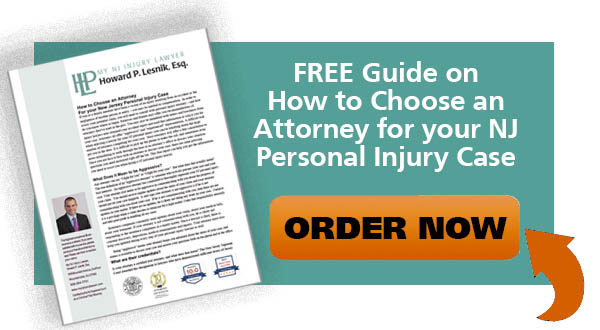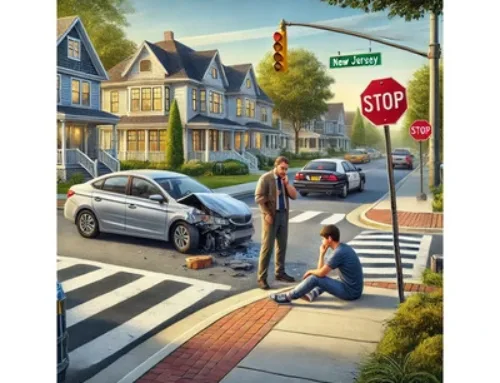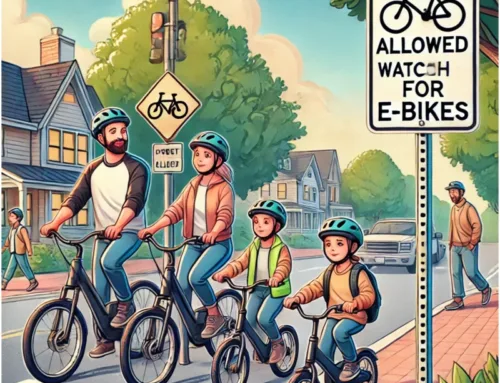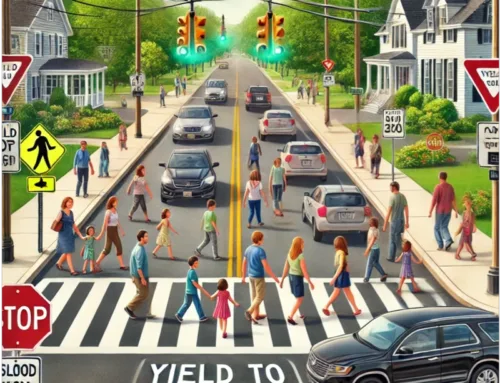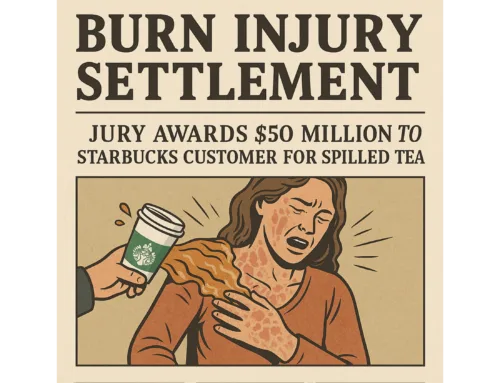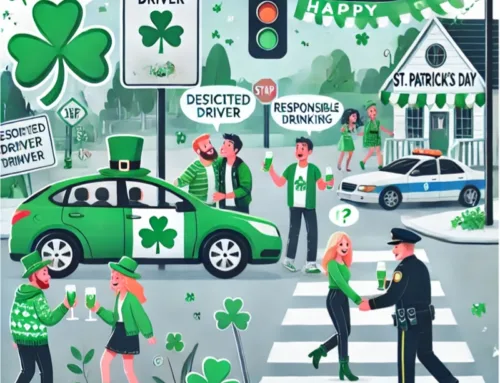Liability is a legal consent for the party that is responsible for causing an accident. Determining who is responsible for an accident can be the most important part of a personal injury claim in in New Jersey. If you cannot determine who caused an accident, you will never know who to make a claim against. The negligent party who caused the NJ personal injury accident – and their insurance company – is ultimately responsible for compensating you for your injuries.
A contributing factor in most motor vehicle accidents can be traced back to driver error or lapse of attention on either someone involved in the crash, or someone who contributed more indirectly to the situation (through faulty vehicle repair, poor road maintenance, and so on). More often than not, however, one or more of the parties involved in the accident will ultimately be proven negligent. Everyone who uses the roads has a duty of care to conduct themselves in a reasonably safe and predictable manner in accordance with traffic laws. This includes both motorists and pedestrians, though the rules that apply to pedestrians differ from those governing automobiles and trucks. When an auto or truck accident involving a pedestrian occurs, both sets of legal rules are examined to determine where the fault for the accident lies.
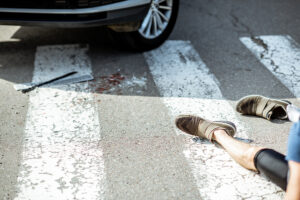
The average car weights 4,000 pounds. A tractor trailer can weigh 35,000 pounds and can go up to 80,000 pounds when fully loaded. Given this weight coupled with the speed that cars and trucks travel, the duty of care that drivers hold toward pedestrians is significant, and the legal consequences for breaching pedestrian safety laws are significantly higher for drivers than for pedestrians, even if no accident results. Failure to adhere to crosswalk laws can earn drivers a $200 fine, 15 days of community service, and 4 points to their licenses. Pedestrians have some responsibility of their own, however, and can face a $54 fine and community service sentences they may receive for failing to yield when appropriate. Of course, in the event that an accident ensues and someone is injured, the consequences for the party deemed at fault may far exceed the cost of a traffic ticket, especially in non-economic terms of pain and suffering and other losses.
In New Jersey, all drivers are required to stop (and stay stopped) to allow the crossing of any pedestrian in a marked crosswalk. Likewise, if the motorist is turning right turn at a red light, stop sign, or yield sign, he must stop and wait for any pedestrian in a crosswalk bridging the road he is turning onto. In addition, if a pedestrian is already in the midst of crossing the street, a driver must stop and wait if the pedestrian is within one lane of his side of the road, regardless of the presence of a marked crosswalk. Motorists behind the stopped driver may not attempt to pass a vehicle that is stopped for a pedestrian.
Intersections without marked crosswalks or other traffic indicators are considered “unmarked crosswalks,” and pedestrians may cross at such intersections. Motorists are required to yield the right of way to pedestrians crossing the street at such unmarked crosswalks. Overall, drivers are legally expected to exercise due care for the safety of any pedestrian who enters the road. Again, due to the difference in power between a motorist and a pedestrian with respect to the speed of an automobile, its size, and the protection it affords its occupants, the law states that if a pedestrian automotive accident occurs when the pedestrian is within a marked crosswalk or crossing at an unmarked crosswalk at an intersection, there is a permissive inference that the driver failed to exercise due care for the pedestrian’s safety. “Permissive inference” is a legal term that means a jury is allowed to assume that the fact of a pedestrian accident under those circumstances implies the driver’s failure in their duty of care.
Although a pedestrian has less power to injure a driver, pedestrians still have a statutory duty of care, as outlined in traffic laws. Specifically, pedestrians are required to yield the right of way to motorists when crossing the road at any point outside of a marked crosswalk or the unmarked crosswalk of an intersection. Likewise, if the pedestrian is crossing at an intersection with traffic signals and oncoming traffic has a green signal while the pedestrian does not, the pedestrian must yield. Where sidewalks and crosswalks exist, pedestrians must use these instead of walking in the roadway. In the absence of sidewalks, pedestrians must walk on the extreme left side or shoulder of the road, facing oncoming traffic. A pedestrian may never cross a road with a median barrier separating cars traveling in opposing directions, unless a designated pedestrian crossing area is provided. Pedestrians must not enter the roadway in the path of an oncoming vehicle that is too close for the driver to stop or yield and must otherwise exercise due care for their own safety. This last provision is necessarily subjective, and many arguments involving liability and fault in an accident revolve around whether a driver “could have stopped” or not. This is why it’s crucial for pedestrians injured in car accidents to have an experienced personal injury lawyer on their side: so fault is appropriately determined and they receive the fair compensation they deserve. It is always the duty of a driver of an automobile or a truck to exercise “due care” under all the circumstances prevailing at the time, and it is up to your attorney to fully develop those circumstances to prove your case.
Contact MyNJInjuryLawyer
If you or a loved one suffered an injury in an accident in NJ, you should contact an attorney familiar with handling these claims. An experienced NJ Injury Lawyer will know how to obtain medical records, videos, photographs, experts, locate witnesses and contact the insurance company so you can make a claim for your injuries.
My NJ Injury Lawyer Howard P. Lesnik, Esq. offers complimentary strategy sessions to address any issue or questions you may have for your injury claim in NJ.
Please contact NJ Injury Lawyer Howard Lesnik, Esq., immediately if you were involved in an accident. I personally handle NJ personal injury cases on a regular basis. Please contact me now by email, by phoning 908.264.7701, or by completing the form to the right to schedule your complimentary 30-minute strategy session.


